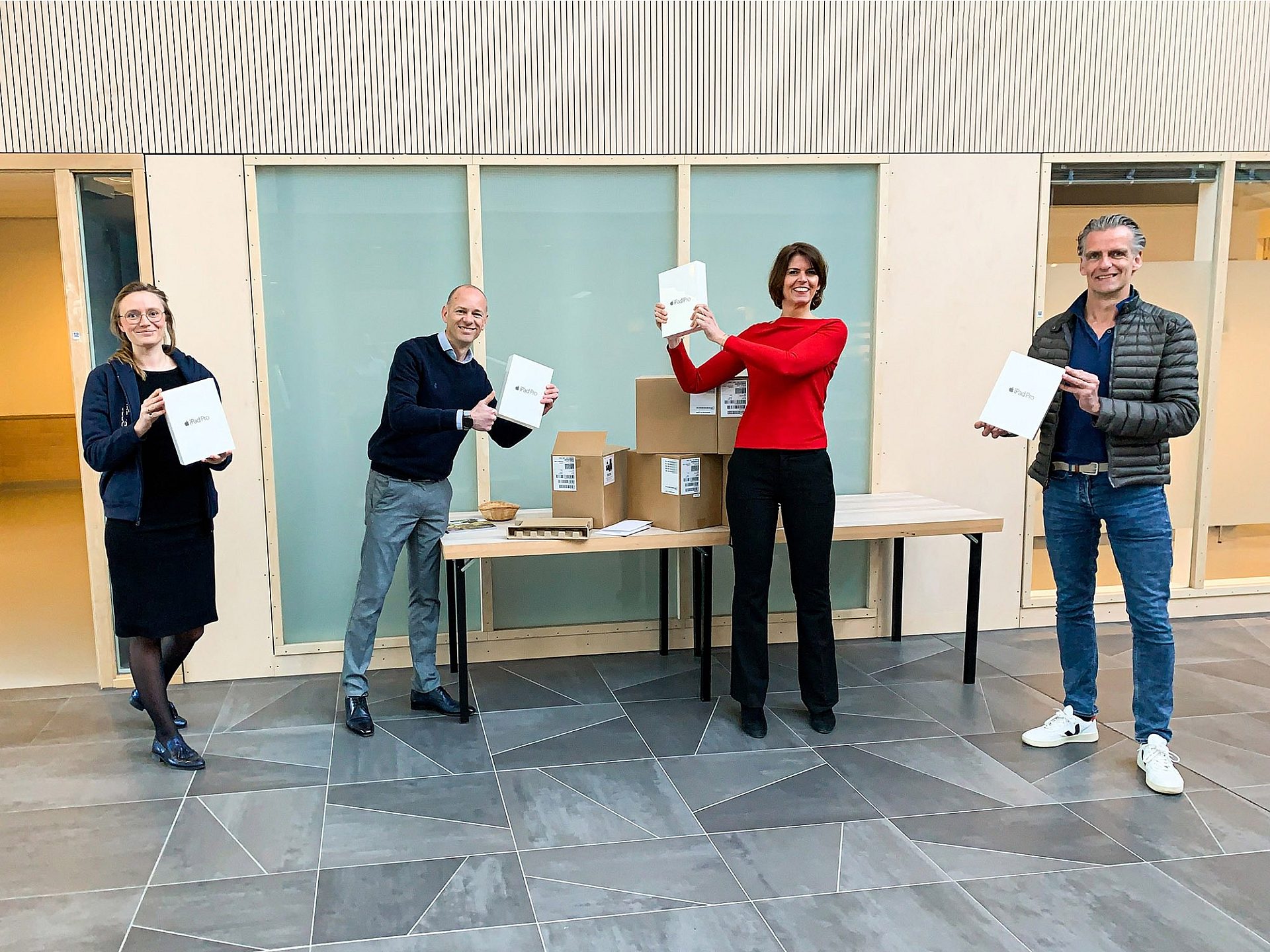It’s March 2020. Covid-19 has affected all of us in many different ways. We couldn’t go to the office anymore, video conferencing was becoming the standard of communication, there was no face-to-face contact with friends or family for a long time, no life outside our homes, and we were searching the news every day, hoping to read something encouraging.
The coronavirus crisis became even more palpable for us when, in the second half of 2020, the partner of one of our colleagues came down with a fever and was hastily transported by ambulance to the hospital. It doesn’t get more real than that. All of a sudden, the virus wasn’t only an item in our news feeds, but something very near, very threatening.
Our colleague didn’t even have a chance to visit her loved one, hold their hand, or just be there. That is where we learned what a difference an iPad could make. For our colleague, connecting through FaceTime became the only possibility for communicating with hospital staff or her partner. These were very precious moments in an extremely stressful and uncertain situation. So we thought: this should be available to everyone. And that’s how our plan got started.
The key idea was that not being able to see a loved one is the worst thing in the world. Imagine having your grandmother, father, daughter or spouse isolated on the incentive care ward for days, or even weeks. That is why we introduced StayConnected: an initiative to give iPads to hospitals for free, so that they can use them to communicate with the outside world and their patients’ loved ones.
Everything was connected though a social platform and website where anyone in the Netherlands could support this initiative. The iPads were intended for people in hospitals who could not receive visitors. Over 30 hospitals ordered iPads from StayConnected and we supplied close to 1,000 iPads in total. In all, over €250K was collected for the charity. Many individuals and several of our partners, including Apple, were part of this initiative.




